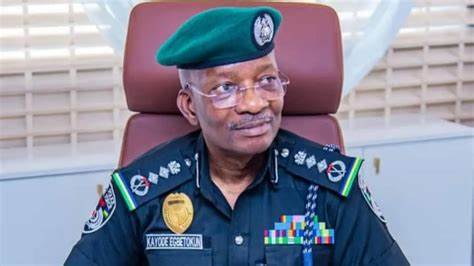The Resource Centre for Human Rights and Civic Education (CHRICED) has raised alarm over what it describes as a gross miscarriage of justice and abuse of state power in the ongoing land fraud scandal involving Rebecca Omokamo Godwin Isaac, also known as Bilikisu Ishaku Aliyu.
Grassroots Parrot reports that at the center of the controversy is the plight of a 79-year-old widow, Collen Mero Yesufu, who has spent years seeking justice after her land, Plot 4022 in Guzape District, Abuja, was allegedly stolen through forgery and fraud.
CHRICED’s concern centers on the role of the Inspector General of Police (IGP), Kayode Egbetokun, who the group accuses of actively shielding Bilikisu from arrest despite overwhelming evidence and court orders against her.
CHRICED, in a statement issued on Sunday and signed by its Executive Director, Dr. Ibrahim Zikirullahi, said armed police officers deployed under the directive of the IGP have continued to provide illegal protection for the suspect, allowing her to remain in occupation of the disputed property in defiance of judicial rulings.
READ ALSO: Workers Are Not Beggars, Pay Them A Living Wage, CHRICED Tells FG, States
Dr.. Zikirullahi cited multiple investigative reports from the Economic and Financial Crimes Commission (EFCC), the Federal Capital Territory Administration (FCTA), and the Department of Development Control that document clear instances of forgery, criminal trespass, and obtaining property by false pretense.
Yet, despite these findings, and court orders mandating forfeiture of the property, Bilikisu remains untouchable—thanks to what CHRICED describes as the “weaponization of law enforcement.”
“The Inspector General of Police is duty-bound to uphold the law, not use his office to shield suspects from justice,” said Zikirullahi. “This case is not just about a piece of land—it is about the credibility of Nigeria’s entire justice system. When police officers are deployed to protect criminal suspects instead of enforcing court orders, the rule of law is under attack.”
The Executive Director argued that the police protection being offered to Bilikisu is a direct violation of Nigerian law, referencing Sections 126 and 518 of the Criminal Code, which criminalize obstruction of justice and conspiracy, as well as Sections 97 and 104 of the Penal Code, which hold public servants accountable for failing to apprehend suspects and abusing office.
These legal provisions, Dr. Zikirullahi noted, have been reinforced by landmark court rulings, including Duru v. FRN (2013), FRN v. Orji Kalu (2021), and FRN v. Dariye (2015).
Dr. Zikirullahi likened the current scenario to the recent attempt by the EFCC to arrest former Kogi State Governor Yahaya Bello, which was similarly obstructed by law enforcement.
“What we are seeing is a dangerous pattern,” he said. “Powerful individuals are increasingly using state institutions to evade justice, and unless this is stopped, public confidence in our justice system will collapse.”
CHRICED statement is, however, demanding the immediate withdrawal of the police officers stationed at Plot 4022, calling the deployment unlawful and unconstitutional. The statement urged the EFCC to continue its work without fear or interference, while also calling on the judiciary to act decisively against delay tactics aimed at frustrating justice.
READ ALSO: CHRICED Partners Abuja Varsity To Establish Heritage Centre For FCT Indigenous Communities
CHRICED also called on the National Assembly, the Police Service Commission (PSC), and the Code of Conduct Bureau (CCB) to open a high-level investigation into the IGP’s conduct.
The organization also appealed to President Bola Ahmed Tinubu to intervene and restore public trust in Nigeria’s justice system, warning that failure to act would send a dangerous message about the impunity of those in power.
“We will not back down,” Dr. Zikirullahi declared. “If this injustice continues, CHRICED is prepared to escalate its response through legal action, public interest litigation, civic mobilization, and international advocacy. This is a test case for Nigeria. Either we are a country governed by laws, or we are not.”
He also called on civil society, the media, and international partners to monitor the case closely, emphasizing that justice must not be sacrificed on the altar of privilege and power.
